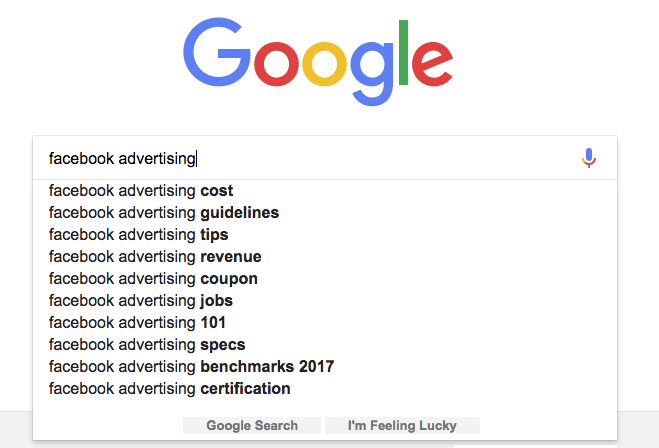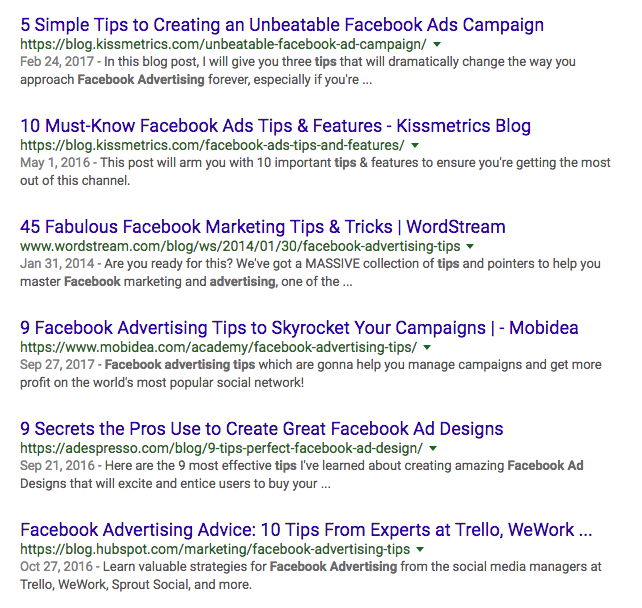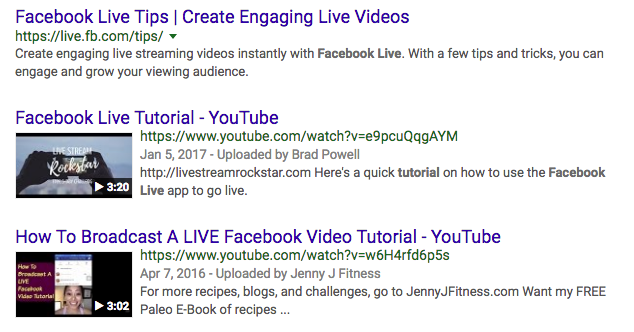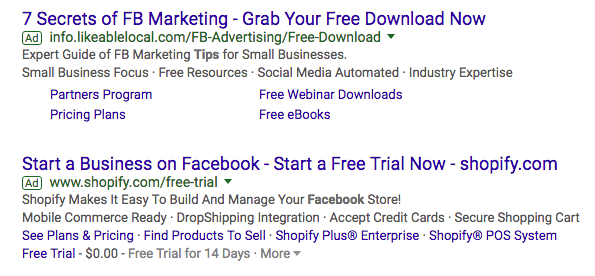When it comes to SEO, the internet is teeming with free tools to assist you with everything from keyword research and content ideas to site performance and competitor insights. But you know what’s also a great resource? Google’s search engine result pages (SERPs).
After all, if you’re trying to rank on Page One of Google, it only makes sense to start there. With a few broad searches, you can quickly gain a handful of actionable takeaways for your SEO efforts. So get Googling.
Here are just a few of the insights you can glean from giving Google’s search results a closer look:
Keywords and Content Topics
By Googling some broad keyword phrases associated with your business, including any services or products, you can quickly gain inspiration for new keywords and possible content topics.
Here are the two easiest ways to do this:
1. See what populates in the search bar via autocomplete.

In this example, I Googled “Facebook Advertising” since it’s a Social Media service we provide at PCG Companies. Of the four suggested searches, “Facebook advertising guidelines” and “Facebook advertising tips” could be two good long-tailed keywords to target with content like blogs, infographics, videos, and even white papers or ebooks.
2. Scroll down to the bottom of the page to check out related searches.

At the bottom of most Google SERPs is a section showing searches related to your query. Much like autocomplete, this is a good area to inspect to understand a searcher’s intent and to discover long-tailed keywords. In this example, you’ll notice searches for “strategy,” “examples,” and “guides,” meaning people are looking for these kinds of resources. There’s no reason you can’t be the one to make them.
Bonus: Some search results also include a section called “People Also Ask,” which would likewise be a good source for inspiration.
Type of Content
Now that you have a better idea of what people are searching for, the next step is to determine what kind of content best resonates with those looking. A quick Google search for “Facebook advertising tips” results in mostly blog posts.

That form of content may be an obvious one, but there is a variety of types that can also rank, including:
- Pages
- Videos
- Images
- PDFs
Bottom line: if a search query produces mostly video results, for example, then make sure your content strategy for those keywords includes video.

Inspiration for Title Tags
At this point in the research game, you’ve got some strong keyword ideas to work with and have narrowed down the content type, but execution is still crucial. One such element of optimization that can’t be overlooked is the title tag.
And for that I recommend perusing the ad copy used in the paid ads. Ad copy is often tested and tweaked until the best wording has been found, and the feedback loop is so much quicker than in the world of organic search, which makes looking at the paid ads a worthwhile exercise. If you see something you like, try using it in your own meta titles. After all, imitation is the sincerest form of flattery.
If we go back to the “Facebook Advertising Tips” example, you’ll notice that both paid ads are hoping to woo consumers with the promise of “free” things. One for a free trial, the other for a free download. Taking a cue from them, adding a simple why buy/promo proposition to your meta titles where applicable might help with click-through-rate.

And there you have it folks, get Googling! For more search engine optimization and content marketing tips subscribe to the PCG Companies newsletter.

